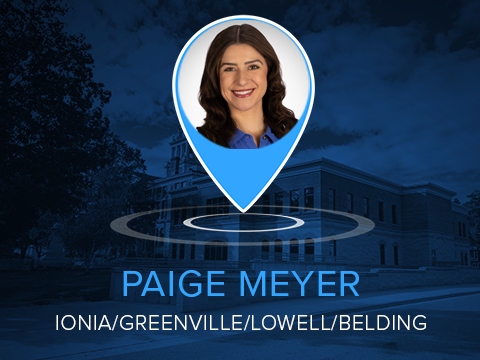Of Mice and Men by John Steinbeck is celebrated for its unflinching portrayal of migrant life during the Great Depression. But almost as often some have questioned whether the use of racial profanity in the book belongs in the classroom.
Many of the African American characters are referred to as the N-word.
It's a subject often leading to constructive conversations among educators, conversations they want both parents and students to participate in.
We sat down with Nate Fowler at Lowell Area Schools and Eric Washington at Calvin University to discuss where the questions surrounding this book may lead and what they see being gained from it.
"We’ve been made aware of this concern, and it started the process of us for examining our instructional practices for how we have this, how we hold difficult conversations," Nate Fowler, director of curriculum for Lowell Area Schools told FOX 17 after a parent raised concerns.
“The N-Word hasn’t gone away. [It's] still being used, but if we feel as though the use of the word is problematic -- which we should feel that way -- then let’s engage it," said Eric Washington, director of African and African Diaspora Studies at Calvin University. "Let’s not censor ourselves or shoo ourselves away from the exploration from why the word has been used in the first place."
Steinbeck's classic novel is almost 100 years old and is praised for its realism. Fowler and Washington say the focus should be on context when studying the book.
“It’s not right -- it’s never been right -- but it tells an honest story," Washington explains on use of the N-word. “If we’re teaching the book correctly, I don’t think that’s a problem in terms of spreading racism.”
According to surveys by the American Library Association, Of Mice and Men was one of the most challenged books in the early 21st century, but Fowler says it fits both their intentions as educators and state requirements for public schools.
Both educators agree: Race should be addressed head-on in schools and home. “Using materials like this can afford teachers an opportunity to have conversations in their classrooms about race," said Fowler. "They afford them the opportunity to see things from a different place and time and just how society and culture has changed.”
“I think the hard work has to be done by parents to say ‘Look, this is literature. We have a good idea of what the author was intending here, but it’s not license to use the word and apply it to African Americans,'” Washington said.
The question for some becomes should Of Mice and Men still be in the classroom? These educators say 'absolutely'.
“I don’t think it loses utility, because we haven’t exhausted our knowledge of history," Washington says. "We have not exhausted our knowledge of good literature, and different themes that were relevant 100 years ago are still relevant today. So I don’t think a good book loses its utility.”
Look beyond the text itself to the substance and the lessons it can teach, Washington says. Look for the new ideas, thoughts, and experiences literature can bring.
"We have to have good mix," Washington noted, "stories written by white authors in the past that tell more or less a white story. But we also have to have African American authors telling African American stories, Latino writers, Native American writers, women writers, across the spectrum. Our canon has to be broad and wide.”
Lowell Area Schools says they are taking to heart the concerns that have been raised. “One thing we’ve recently tried to get better at, and as part of our improvement process, is looking at those material through an equity lens as well," Fowler told FOX 17, "making sure that students are able to see themselves through the materials.” The conversation then becomes a constant one, not just between educator and student, but parents as well.
“There has to be communication," Washington said. “Parents should have a voice.”
Both educators say it's important for parents to familiarize themselves with material before diving into conversations about literature, and they encourage parents to read literature from different perspectives and experiences.










